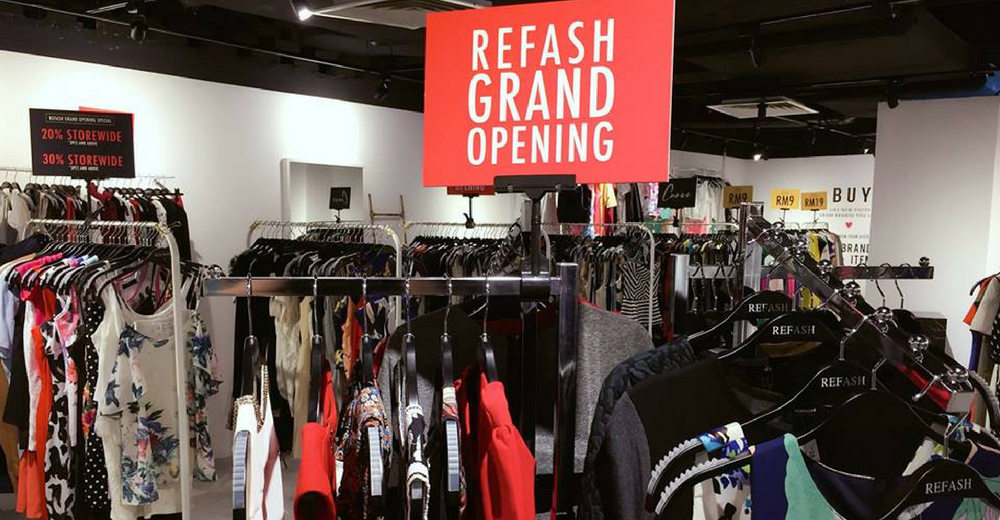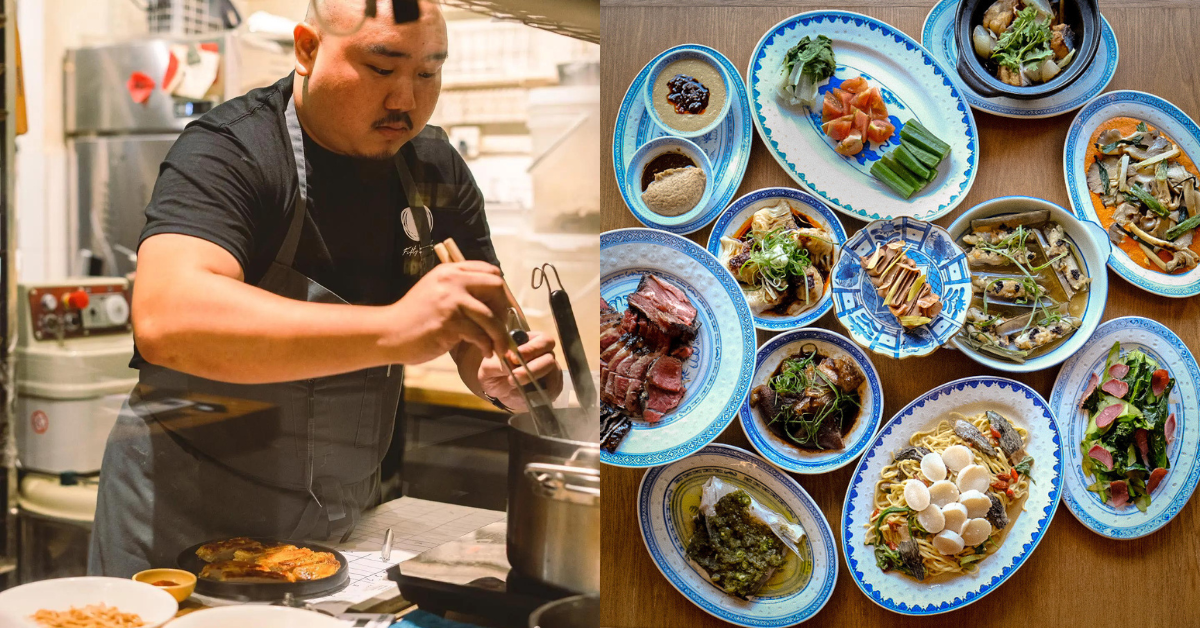Are you aware that the clothes you’re wearing now have probably contributed to the 2nd most polluting industry in the world?
No jokes, there’s a lot of resource and energy that goes into fashion. Each year, close to 90,000kg of fabric is produced which consumes 1.5 trillion kWh of electricity. To give you a better idea, here’s a table showing what that amount of electricity can do.

It’s a serious issue that needs more awareness. Fashion designers and brands are slowly enlightening consumers by incorporating the idea of secondhand fashion into the industry. So this Singapore-based startup decided to join in on the movement and start a business model that deals with reducing textile wastage.
First World Problem: “I Don’t Know What To Wear.”
Refash is a startup that sells pre-loved women’s clothes via online and offline stores. They launched their website in Singapore last year before opening their online store in Malaysia 3 months ago. Last February saw the opening of their first offline store in Sungai Wang Plaza, Kuala Lumpur to coincide with its Malaysian website launch.
Founder and CEO of Refash, Aloysius Sng, said the idea started when he took note of the rapid influx of fashion brands and shortening trends. So it’s no surprise when some women take forever to get ready as on average, they can own more than a few hundred pieces of apparel.
Thus he thought, why not turn that into an inventory? Instead of women donating or throwing away their clothes, Refash could help take and sell on their behalf while the clothes still have retail and resale value.
“Women everywhere have the same problem; a bursting wardrobe! Women don’t wear more than 70% of whats in their closet. By bringing Refash to Malaysia, we hope to impact more ladies by presenting them a whole new way to buy and sell pre-owned fast fashion,” said Aloysius.

His team graduated from the Singapore Press Holdings Plug & Play accelerator programme in April last year with this idea and raised US$294,000 (RM1,310,505) in a seed round, led by Singapore’s Tri5 Ventures, Malaysia-based Tinkbig Ventures and an unnamed angel investor.
Giving Clothes A Second Chance
Refash makes the process simple. All sellers need to do is pack their unwanted items into a bag, pass it to the team and they’ll handle the rest. Refash coordinates the logistics behind the entire process and ensures each item is in good condition and quality for the next owner.

But not everyone can be a seller. The items are accepted based on condition and quality. If the quality isn’t up to par, Refash provide sellers the option to donate items that are rejected to recycling channels, so at least it won’t turn into textile waste.
Apart from the website, the Singaporean side has a shopping mobile app which Aloysius said he wants to bring to Malaysia. Plans are made for the app to launch soon.
Refash maintains a smooth customer experience by improving the backend support to make selling clothes easier for sellers. The company has partnered with Ninja Van Malaysia so that once sellers start to send in their items, they can actually arrange for their own courier delivery via the Refash website.
Expanding To Malaysia
When Refash started, it was a physical store in City Plaza mall, Singapore. The venture then grew to having omni-sales channels as part of their overall strategy of becoming the go-to platform for women to buy and sell like-new fashion.

After seeing success in Singapore, Aloysius knew the Malaysian market would be next. Consumers from both countries share similarities in fashion tastes and trends. And of course, they also enjoy shopping quality fashion at affordable prices.
Talking about his observations on Malaysian shoppers, Aloysius said, “They look at the quality of the items, whether the items are still in-trend. The brands actually do not matter. What matters is that the item is still in like-new condition.”

The launch of their first retail store in Sungei Wang was a good way of gauging reception. Aloysius has plans to push out the brand to other cities in Malaysia too such as Penang.
When asked what it’s like balancing online and offline stores at the same time, Aloysius said that logistics and fulfilment are different for both channels.
“A physical store faces financial challenges such as rental rates, therefore turnover should be fast enough to help us cope with the finances. Online stores require sufficient listings to meet the demand of discerning shoppers who always want to see more and shop for more items, since scrolling down a page is almost effortless.”
“Refash launches two new online collections a week consisting of quality items from the best brands in order to keep up with our shoppers,” shared Aloysius to Vulcan Post.
He said the presentation of items are also equally important for both. There’s rack arrangement and store décor for physical store, and site design for online store.
Currently, their focus is on women’s fashion and have no plans on branching into menswear just yet. Their upcoming plans include launching a peer-to-peer marketplace in Singapore this April with the launch of their mobile app for Malaysia.
Feature Image Credit: Refash.my Facebook









